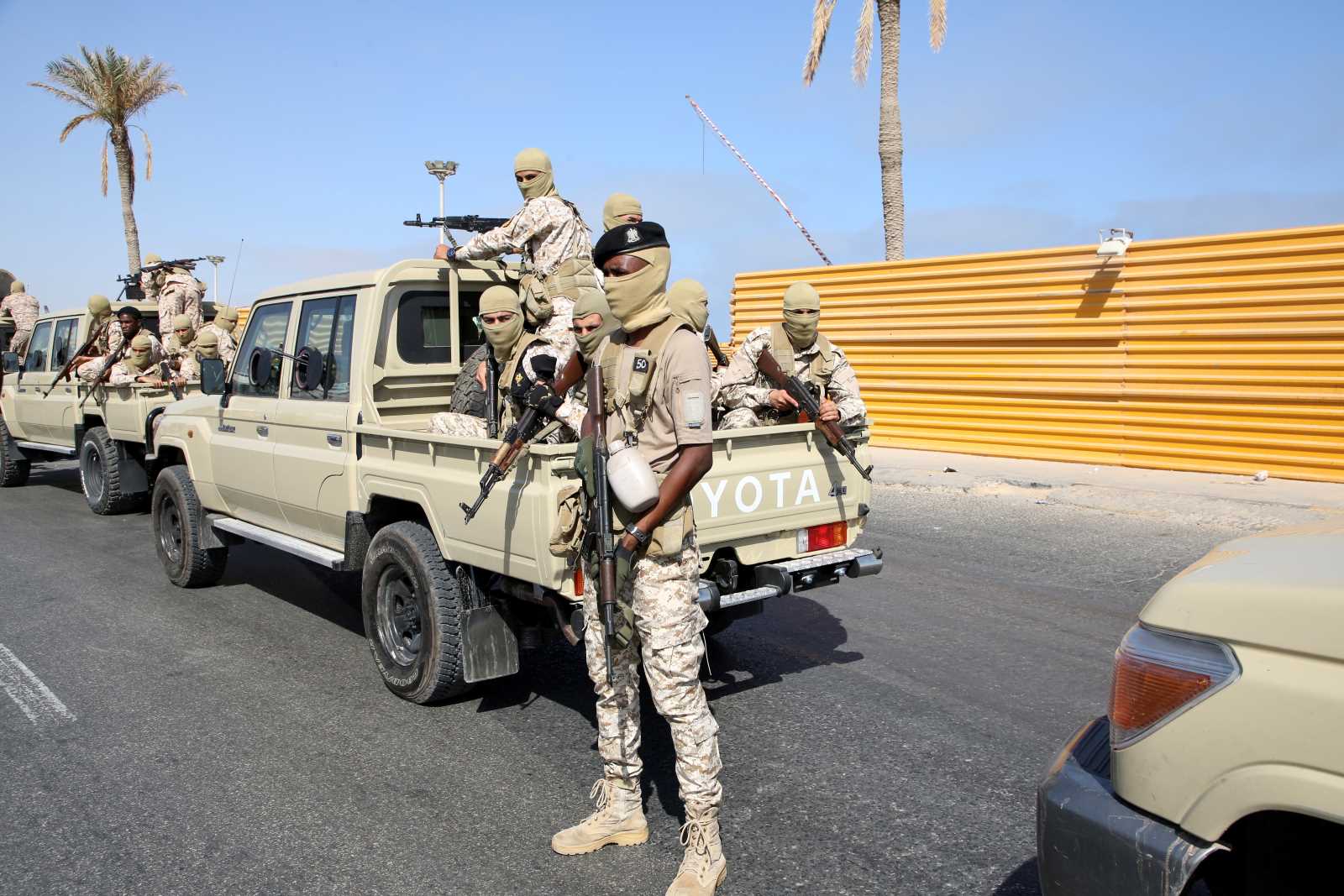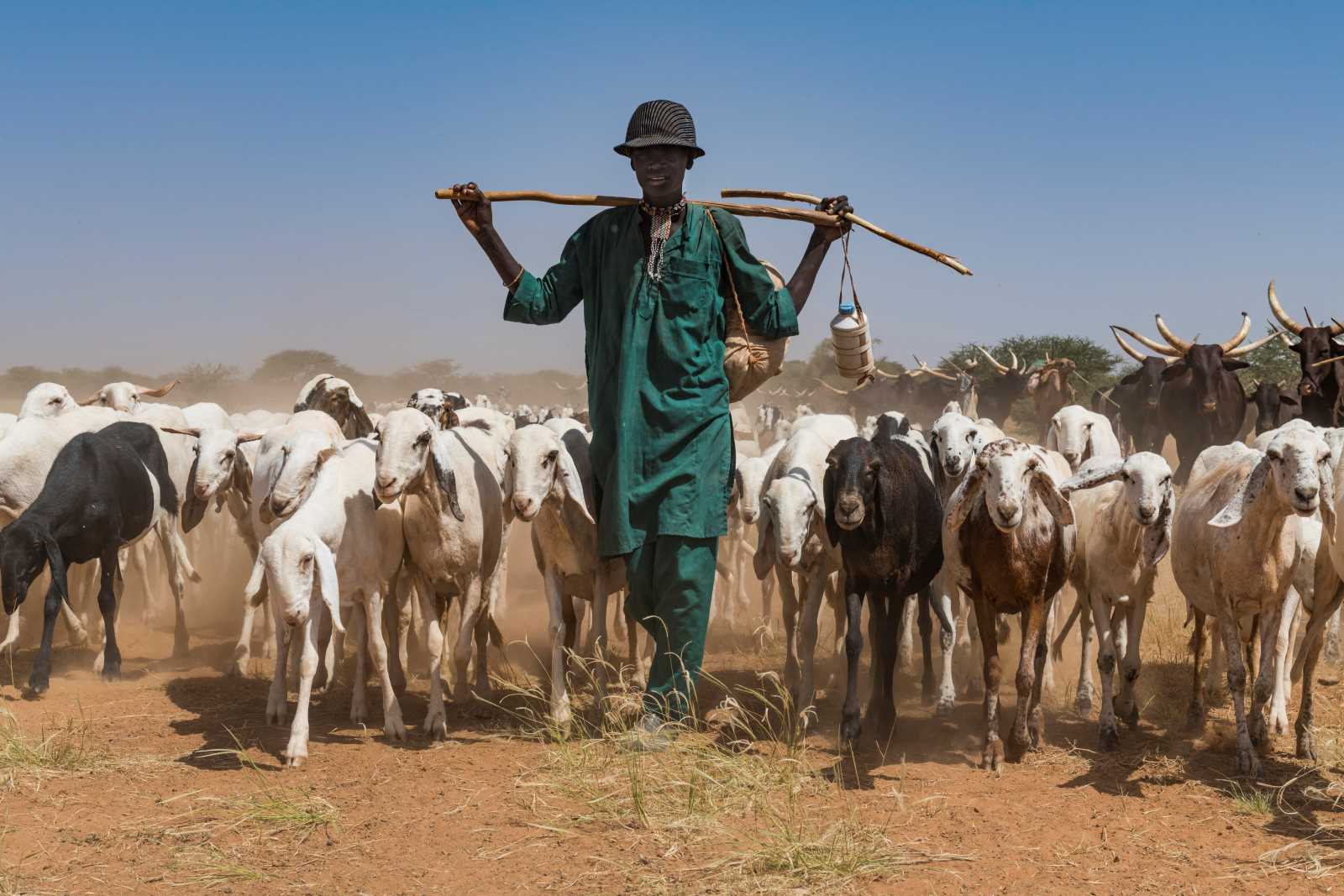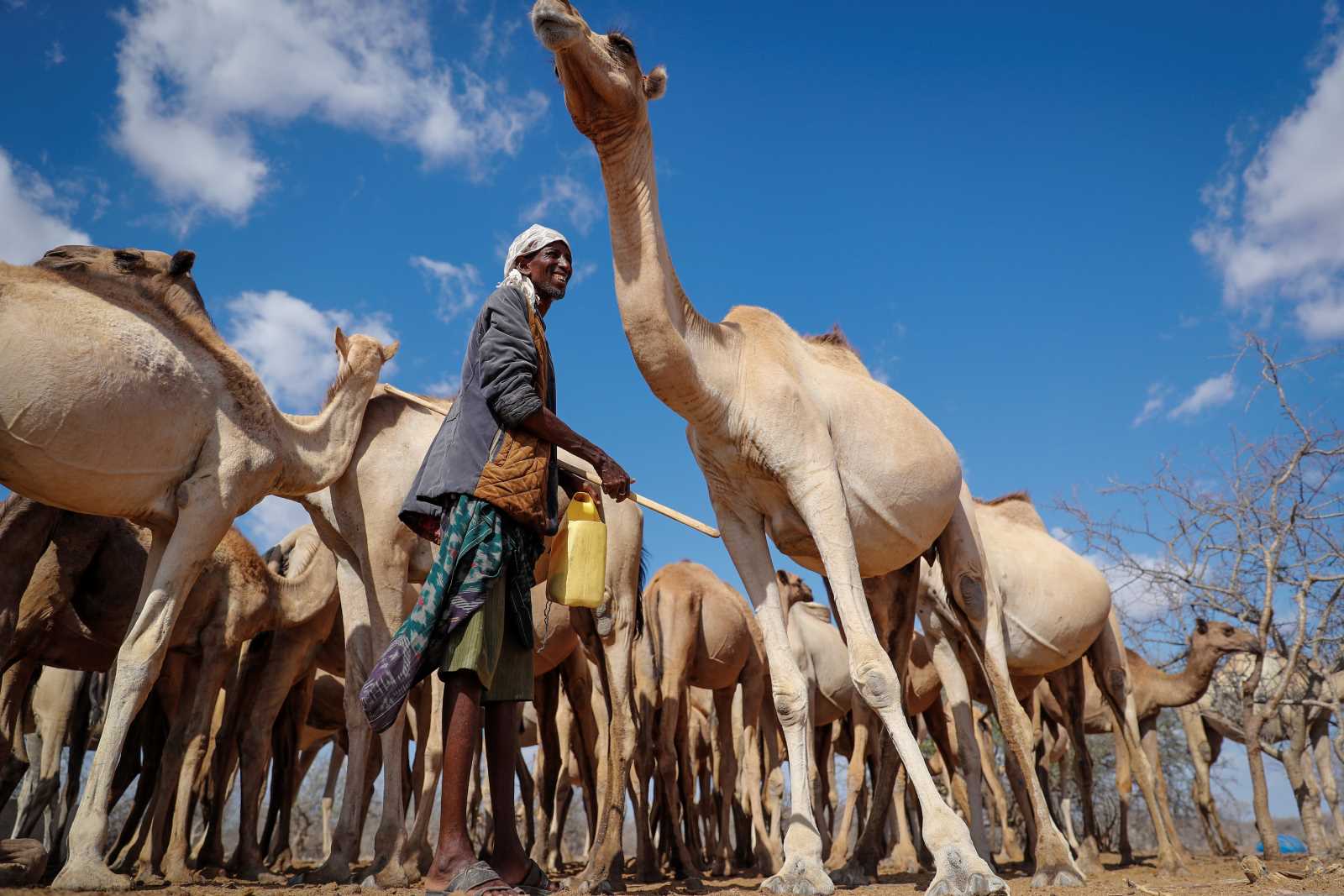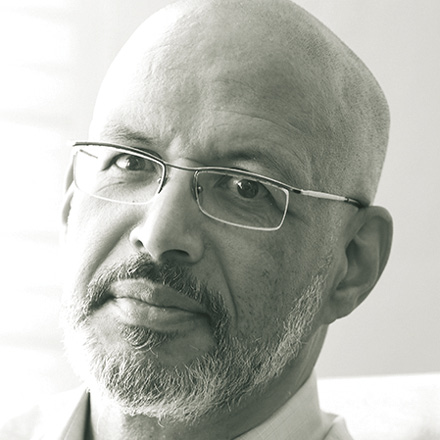Ressource wealth
“Deathly silence”
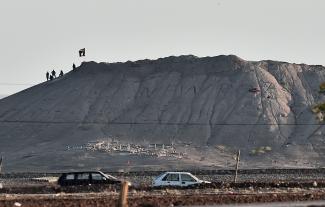
Does the oil curse haunt the entire Arab world?
Yes, it is obvious that all oil-rich countries in the Arab world have been run by secular dictators or absolutist monarchs for a very long time. Oil wealth blocks broad-based, democratic development. Things are hardly better in the other Arab countries, which have fewer development opportunities. What industries will flourish in the desert if there is no oil underneath the sand? The economies of the countries without oil depend on their neighbours’ petrodollars. They get the money through intergovernmental support, migration and transfers to relatives for instance.
In 2003, US President George W. Bush said the entire region would become democratic once Saddam Hussein, Iraq’s dictator, was toppled.
That was a terrible mistake. We all know the results of the invasion that violated international law. It is impossible to enforce democracy with arms from outside.
The Arab spring seems to have equally failed however, perhaps with the exception of Tunisia, where democracy still looks possible. Why did the uprisings hurt the dictators more than they hurt the royal families?
There are several reasons for the failure of the first wave of uprisings:
- The monarchies enjoy a little more legitimacy than dictators do in republics. Their institutional foundation is stronger, and they don’t only rely on military force, but also on tribal identities. Unlike the dictators, moreover, they never promised comprehensive modernisation.
- The oil-exporting monarchies have redistributed some of their wealth among their people, so in some Gulf states, their subjects are quite prosperous.
The Arab spring was the result of what I call the “youth tsunami”: masses of young people who are better educated than previous generations, who know what is going on in other countries thanks to the internet and satellite TV, and who see no future for themselves. The economic situation is definitely more desperate in Tunisia and Egypt than it is in Saudi Arabia or Qatar.
So the kings and emirs did not have to worry much about the Arab spring?
No, that’s wrong. They saw huge challenges:
- Their legitimacy is only marginally stronger than the legitimacy of the secularist-nationalist dictators was. The Saudi elite wants stability at any cost, and it fears nothing more than the idea might take root that legitimacy depends on elections and the people’s will.
- There was an uprising in Bahrain, a Gulf monarchy, in early 2011. It was suppressed with military support from the neighbours. The call for democracy was particularly irritating because a Sunni nobility is ruling a predominantly Shia population in Bahrain. According to the rigid religious doctrines of the Gulf regimes, the Shias are a threat that must be controlled. Saudi Arabia has a huge Shia minority, and suppresses it vehemently.
The Gulf states are considered allies of the west, but they don’t accept the west’s legal norms.
No they don’t. It is well known that they do not respect human rights. The western public, however, is not really aware of just how dreadful the situation is. Of course matters differ from country to country, but Saudi Arabia’s social order is really extremely brutal and backwards. This country, however, dominates the peninsula thanks to its vast oil fields, its relatively large population of 30 million and its holy sites in Mecca and Medina. According to Amnesty International, 79 prisoners who had been sentenced to death were executed in Saudi Arabia in 2013. Three of them were younger than 18 years. Thieves’ hands are cut off. Women aren’t allowed to drive cars. There are no freedoms of opinion, assembly or faith. The system is extremely repressive. The royal family claims absolute power, and the regime’s Wahabi ideology is helpful in this context.
Please explain the term.
The Wahabis are a very strict, puritanical school of Islam. They insist on interpreting the Qur’an literally and don’t tolerate any criticism of their views, which they claim to be the will of God. Scriptures from the 7th century A.D., however, are not good guides for regulating societies in the era of globalisation. The Wahabis are as antediluvian as they are militant. They control education in Saudi Arabia and have a strong influence on thought in other Gulf countries. One of Wahabis’ main tenets is to fight the Shias. This attitude goes back to the early history of Islam, but today it serves to agitate against Iran, a country that is considered a regional rival.
Iran too is an authoritarian-ruled country with lots of oil.
Unfortunately, western media tend to demonise Iran, whereas they downplay Saudi Arabia’s shortcomings. I certainly don’t want to whitewash Iran, but in some regards, Saudi Arabia is worse. In spite of many restrictions, women take part in Iran’s public life, in the workforce and even in politics. That is not so in Saudi Arabia. There is a vibrant civil society in Iran, but not in Saudi Arabia. Iran’s president is elected, though its top revolutionary leader is not. In Saudi Arabia, no top leader is elected.
To what extent do the Gulf states use oil wealth to promote Sunni extremism abroad?
The governments themselves are not doing that. But some individuals and foundations use oil revenues to spread Wahabi views. They send missionaries to the entire Muslim world, fuelling tensions in places where Sunnis and Shias co-exist or where Islam meets other faiths, as it does in Indonesia, Bangladesh or the Sahel region. Wahabism, moreover, blends into militant Salafism. The distinction between Wahabism and Jihadism, the ideology of holy war, is similarly blurred.
So it is true that Gulf monarchies are supporting terrorist outfits like Al Kaida or, more recently, ISIS?
No, things are more complicated than that. The Gulf regimes are shocked when the fanatics turn against them at some point, and once that happens, they oppose them. The problem is that they only see the danger very late because Jihadism is rooted in Wahabism. Saudi Arabia has recently sent many troops to the Iraqi border because of ISIS. At the same time, many people in Saudi Arabia appreciate ISIS. Jihadism makes sense to them, and the monarchy is decadent in their eyes.
Egypt’s Muslim Brothers are Sunnis, but the Saudis did not support them.
The Saudis even endorsed the military coup that removed President Mohammed Mursi from office. The term “coup” is appropriate because General Abdel-Fatah al-Sisi toppled the head of state, who was elected for a four-year term, after the first year.
Why did the Saudis resent Mursi?
The royal family considered him a terrible threat. He was elected. The Muslim Brothers, moreover, are comparatively modern. They are inspired by Islam, but not the Wahabi version. In principle, they accept the sovereignty of the people, and so do all the other organisations, such as the AKP in Turkey or Ennahda in Tunisia, that are historically related to the Brotherhood and run for public office in elections. The Gulf monarchies don’t have much influence on this brand of Islamism. Wahabis started supporting all sorts of Salafi outfits in Egypt in early 2011, trying to reduce the clout of the Muslim Brothers as much as possible. In contrast, the Saudis like al-Sisi. Egypt is quiet again, and the revolutionaries of the Arab spring have been locked up just like the Muslim Brothers. The counter revolution has triumphed, and the Saudis helped to make it happen. Without billions of their support dollars, Egypt’s economy would have collapsed some time ago.
Qatar, however, did support the Muslim Brothers. Why does its foreign policy differ from Saudi Arabia’s?
Qatar’s approach to foreign affairs is multidimensional and quite interesting. The family of the emir is reaching out to all sides. One reason is probably that it wants to make a difference in spite of its somewhat awkward position between Saudi Arabia and Iran, the regional giants. Qatar’s policy has obvious contradictions however. The USA’s most important military base in the region is in Qatar, but the government is in touch with fundamentalist extremism of all colours. The Qataris saw an opportunity to raise their profile by supporting the Muslim Brothers and related organisations. They enjoy considerable influence in the Arab World thanks to Al Jazeera. Western observers are uncomfortable with this broadcasting station’s endorsement of the Muslim Brothers. However, Al Jazeera’s journalism is professional, and it has opened up a media space that previously did not exist.
In Syria’s civil war, however, the various Sunni groups seem to be seeing common cause once again. Turkey’s AKP government thinks it is more important to fight dictator Bashar al-Assad, who belongs to a Shia sect, than to fight ISIS, and it is hesitating to protect Kurds because of domestic difficulties with that ethnic group.
Yes, matters are very complex. From the Turkish perspective, however, it feels odd – to put it mildly – to be called to arms by leaders and journalists from NATO countries that have made it very clear they will, if at all, use air strikes. Kobane’s bloody drama is awful, no doubt. But the AKP is wary of being dragged into a multiple-front war, with ISIS, Kurds, various militias and the Assad regime fighting one another. Moreover, there is a huge risk of conflict erupting within Turkey itself should the Kurds rise against Ankara. Some caution is advisable in such a setting. And it is always problematic to invade another country without a UN mandate for doing so.
In what sense have western governments failed?
They have blundered a lot, starting with arbitrarily drawn borders at the end of colonial rule. Those borders never reflected local identities. Later, the west basically cared about oil exports and Israel’s safety for decades. It accepted the absurd dichotomy that the Arab world must either be under authoritarian rule or will fall to Islamism. That dichotomy was the regimes’ propaganda of course. Moreover, western leaders acted as if Islamism was a monolithic phenomenon, orchestrated by Tehran. If at all, they only noticed Wahabi fundamentalism after the terror attacks of 11 September 2001. To this day, the west does not understand that Islam – just like Christianity – has a multitude of different nuances. Nor does the west understand that there can be no peaceful solution in Syria, Iraq or elsewhere so long as the citizens have not scope for becoming actively involved in politics and referring to their faith in that context.
What is happening instead?
What we are witnessing at the moment, particularly in Egypt, is the resurrection of the old dichotomy of an oppressive military versus the supposed terrorists of discredited opposition groups. In Syria, the most radical groups are the most successful. Saudi Arabia is continuing in its double act as military government with fundamentalist religious background. Riyadh would like deathly silence all over the Arab. Such silence would make the royal family feel safe.
Questions by Hans Dembowski.
Loay Mudhoon is a journalist who works for Deutsche Welle, specialising in the Middle East and heading the editorial team of Qantara, the broadcaster’s webportal for dialog with the Muslim world.
loay.mudhoon@dw.de
http://en.qantara.de/
http://www.loay-mudhoon.de
